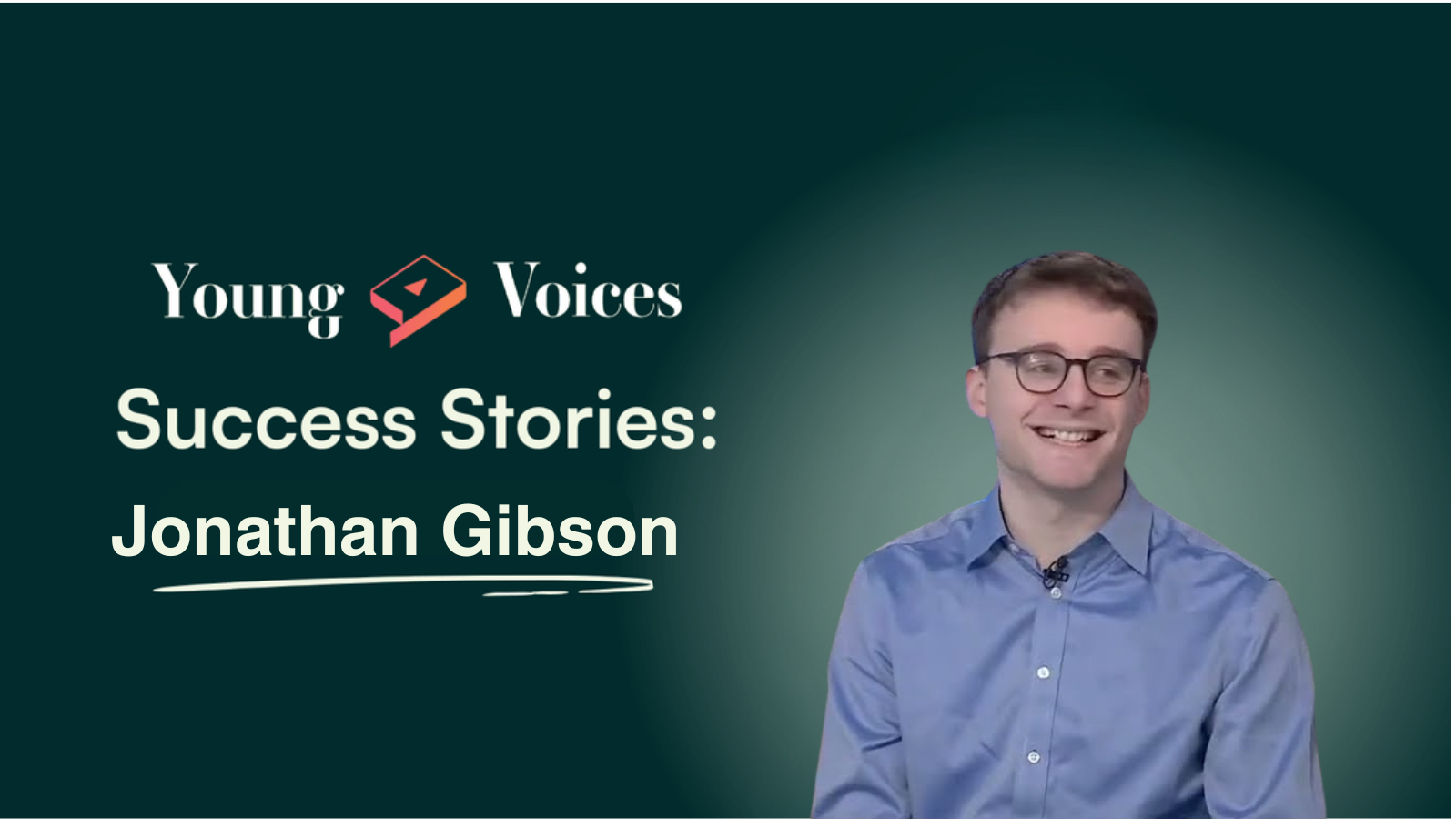
Jonathan Gibson is a Young Voices commentator and has recently accepted a role as an AI reporter through the Tarbell Fellowship at the Dispatch.
Jonathan Gibson’s Success Story Interview:
You're starting a new role as an AI Reporter at The Dispatch through the Tarbell Fellowship. What is the most interesting or exciting thing about Artificial Intelligence that draws you to the subject? Are you optimistic about the future of AI?
As someone with a background in International Relations, the implementation of export controls for cutting edge-chips in 2022 and the release of DeepSeek-R1 in 2024 were some of the most interesting developments. I also greatly enjoyed producing research on Cold War non-state actor diplomacy, and applying this to AI.
The rapid development and diffusion of increasingly capable large language models (ChatGPT, Claude, Grok etc), and the intensity and ferocity of debate regarding the potential capabilities and challenges has also drawn me in.
Scientists such as Yoshua Bengio and Geoffrey Hinton are warning of potential existential and catastrophic risks caused by increasingly powerful AI systems, whilst sceptics such as Melanie Mitchell and Gary Marcus are suggesting the technology is ‘overhyped’ and predict that it collapses. Many in Silicon Valley have an entirely different view, suggesting AGI (artificial general intelligence) will lead to a utopia of total abundance. The economic, social and political implications of which narratives are proven right are immense and drive much debate about policy.
Regarding the future, I truly believe that there is no predetermined path as to whether AI will be 'good' or not; the question depends on the choices we make and ‘good for whom'. Certainly, it seems that there are some huge challenges, and risks. The choices we make over the next several years will likely have long-lasting and substantial impacts, As a journalist at the Dispatch, I hope to help provide serious high-quality reporting to help inform these choices.
What is something that most within mainstream media or opinion journalism misunderstand about AI?
There seem to have been misunderstandings within mainstream media around several big stories connected to AI in the last couple of years. The emergence of DeepSeek was a standout case of this for me.
Much reporting suggested that its release meant export controls didn’t work, or that this had completely closed the gap between the US and China (due to DeepSeek models performing at similar levels to other Western frontier models). These fears were so strong that Nvidia’s stock prices dropped by 17%, whilst the Nasdaq fell more than 3% on the week of the release.
However, such reports neglected the importance of computing power (compute), which remains vital to training powerful models, and didn’t recognise the time lag for export controls to bite. Compute gaps between the US and China remain incredibly important, with DeepSeek CEO having tweeted that it was the biggest bottleneck for AI development in the Chinese ecosystem. Whilst DeepSeek's achievements were genuine and significant, it does not mean its future development will not be challenging as access to cutting edge chips becomes increasingly difficult.
How has participating in Young Voices helped you as a writer and commentator?
Participating in Young Voices helped to give me greater confidence in myself and in my abilities, as well as helping me to understand the journalistic landscape far more clearly. It helped me develop my own style, offering useful advice and feedback along the way. Before Young Voices, I had very little knowledge or experience of what journalism was like. However, from the first session on ‘the art of the op-ed’, to the helpful guidance and feedback I received when drafting articles and appearing on air, Young Voices quickly helped me to become a better commentator and strengthen skills which will be useful, wherever I end up.
Which media placement that the Young Voices content team helped you place are you most proud of?
Something that I hadn’t done prior to joining Young Voices, and I really enjoyed, was debating on UK radio and television stations. Having had my first hit over 3 years ago, I began appearing almost weekly on air, with regular hits on stations such as TalkTV, Times Radio and Sky News. This was a completely new experience and introduced me into the world of broadcast media.
How has Young Voices impacted your career trajectory?
It is hard to know whether I would have still ended up in journalism without Young Voices. The networks and skills I have gained from being a part of Young Voices has certainly helped me, and it also illustrated a unique skillset and set of experience when applying for non-journalism roles which helped me to stand out.
With your upcoming role at the Dispatch, what advice would you give to young professionals aspiring to build their career in journalism?
My main advice would be to reach out to people who you admire or want to talk to and listen with an open mind. People are surprisingly generous with their time, and can offer incredibly useful advice or insights, as well as connect you with others. If you can find someone who has had the sort of career you might like, this is particularly useful, but worth doing even if that is not the case.
Support Young Voices' work in empowering rising leaders for liberty like Jonathan!